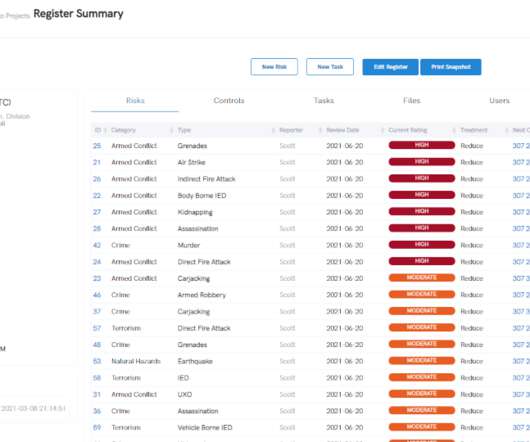Book Review: Constructing Risk
Recovery Diva
NOVEMBER 22, 2021
Reviewed by Donald Watson, editor of the website theOARSlist.com , Organizations Addressing Resilience and Sustainability, editor of Time-Saver Standards for Urban Design (McGraw-Hill 2001), and co-author with Michele Adams of Design for Flooding: Resilience to Climate Change (Wiley 2011). He has served as consultant for United Nations, U.S.













Let's personalize your content